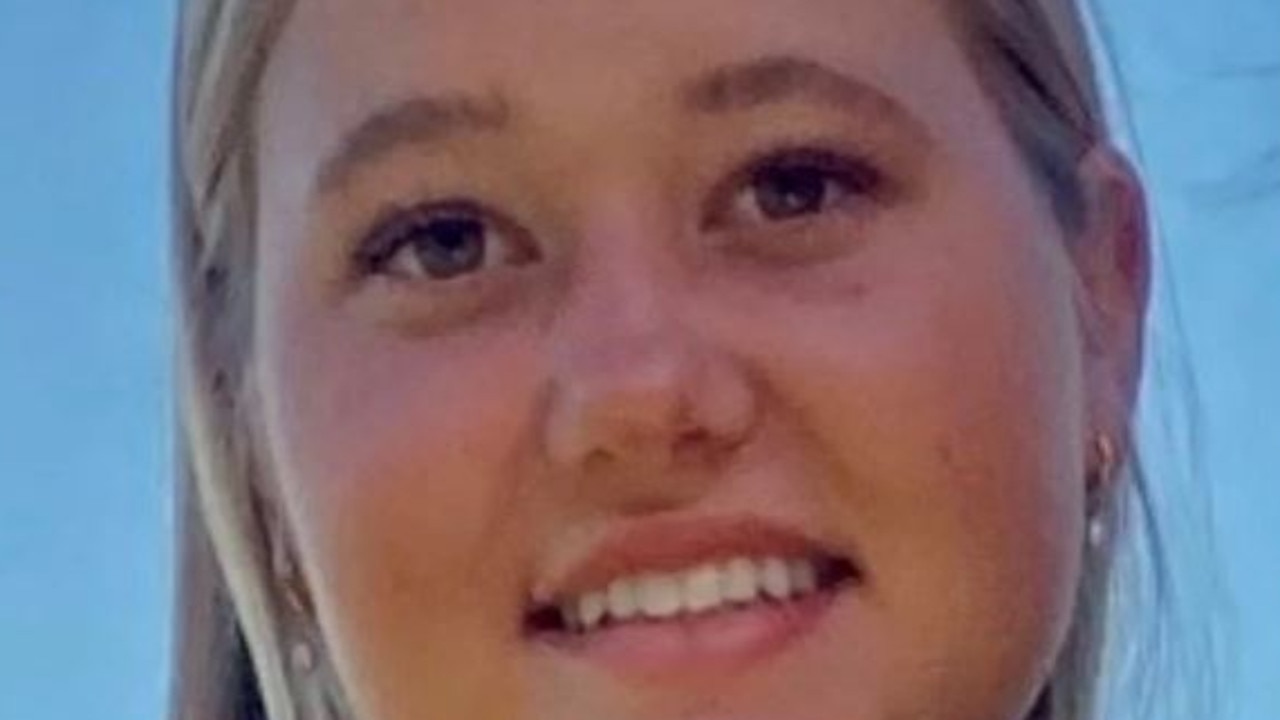Border Force staff stock up on naloxone spray as wave of deadly fentanyl threatens to hit Australian shores
Australian airports are changing to stop criminals bringing in lethal drugs, and catch them in the act before they get off the plane. See the video.
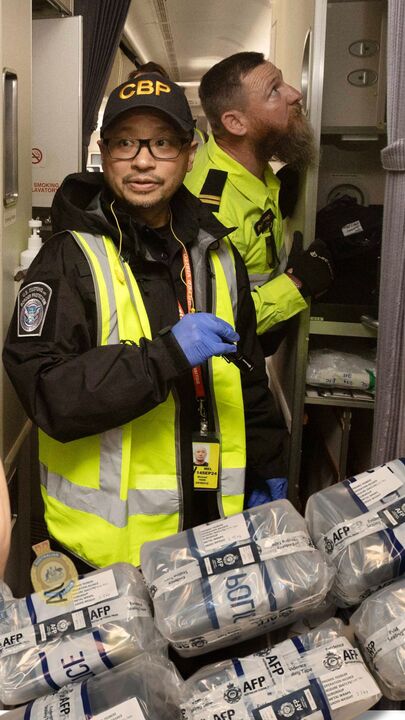
National
Don't miss out on the headlines from National. Followed categories will be added to My News.
Life-saving emergency medication has been rolled out at airports for Australian Border Force staff amid fears of a wave of deadly fentanyl hitting our shores.
The ABF now stocks naloxone spray in case officers touch the narcotic, which is up to 50 times stronger than heroin.
The revelation comes as border security officers from the United States, Canada, New Zealand and Australia shared intelligence in Melbourne this week on drug smugglers’ sneaky new tricks.
Criminals are increasingly using hidden compartments on aircraft to hide the drugs they are smuggling, but officers now have at their disposal mobile X-ray machines to scan luggage on the tarmac.
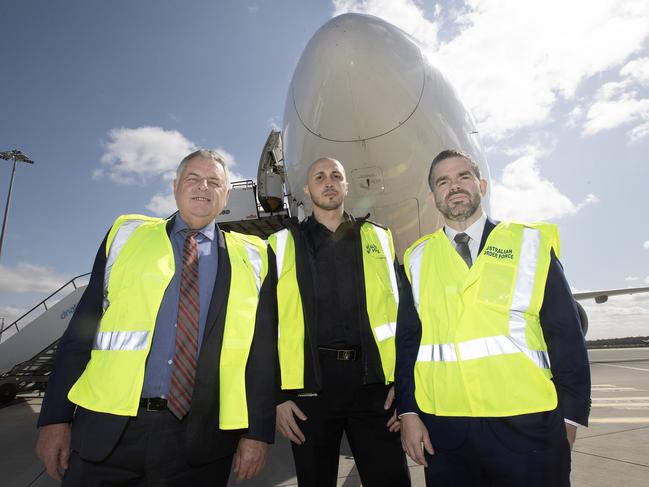
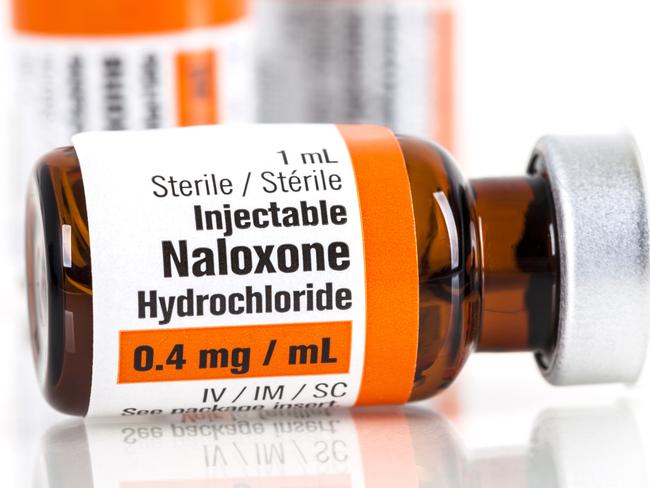
There are also more sophisticated training tips for drug detection dogs.
Inspector Costas Karatzas of the ABF said officers discussed “emerging trends and tradecraft … to get ahead of transnational organised crime groups.”
“We’re looking at the current methodologies that the crime groups are using to flood our communities with illicit drugs,” Inspector Karatzas said during an inspection of an aircraft at Melbourne Airport this week.
Inspector Karatzas was involved in Operation Tin Can which seized almost 100 tonnes of cocaine in a joint exercise in 2022 in just six weeks.
The success of that operation, which involved border security forces from 58 countries, was a platform for this week’s training.
The joint exercise comes as Australian criminals have become global players, who share information, contacts and shipments.
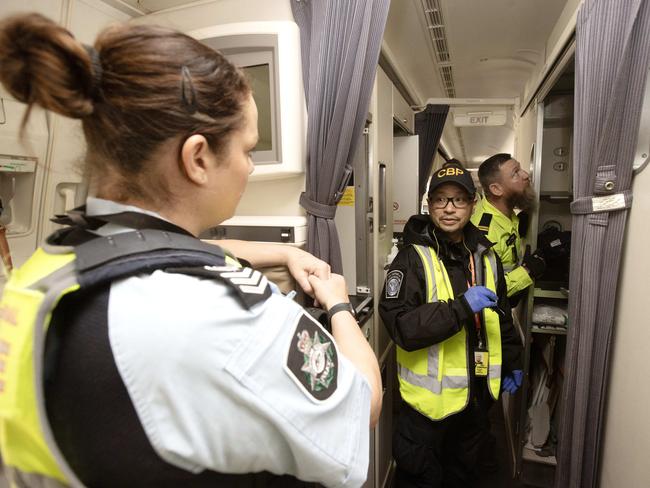
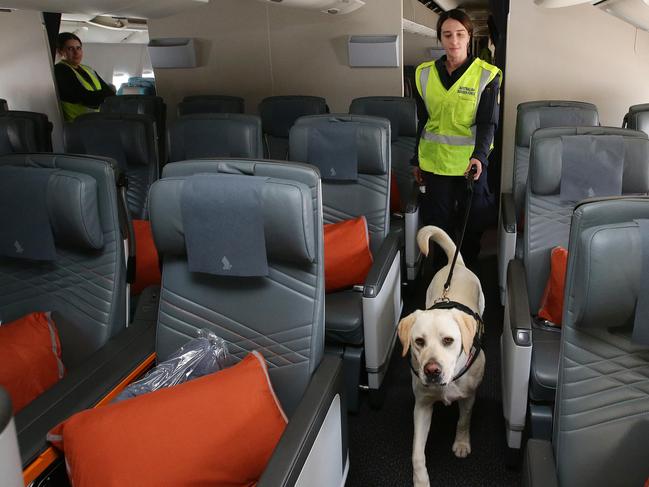
Hells Angels bikies from across the world will meet in Cancun, Mexico, from September 21 where some of the senior leaders will be co-ordinating drug shipments.
And a senior Australian Hells Angels met with his Canadian counterpart in Dubai in June.
The Hells Angels have also been linked to the notorious Irish Kinahan crime clan and a 300kg cocaine shipment seized in Limerick, Ireland, in December last year.
Australia remains a lucrative market for Colombian and Mexican drug cartels, with cocaine and ice selling for more than $200,000 a kilogram.
Those drugs were the mainstay of the world’s drug market but the United States was hit with more than 100,000 drug deaths in 2023, with the surge blamed on the increasing use of fentanyl.
Just 28 milligrams of fentanyl, about two grains of salt, is enough to kill and there are fears that drug cartels will add it to cocaine sold in Australia to make it more addictive, which has been a trend in the United States.
Five million doses of fentanyl were seized in a shipment from Canada, which was discovered at the Port of Melbourne in February 2022.
The 30kg haul of fentanyl was the largest ever seized in Australia.
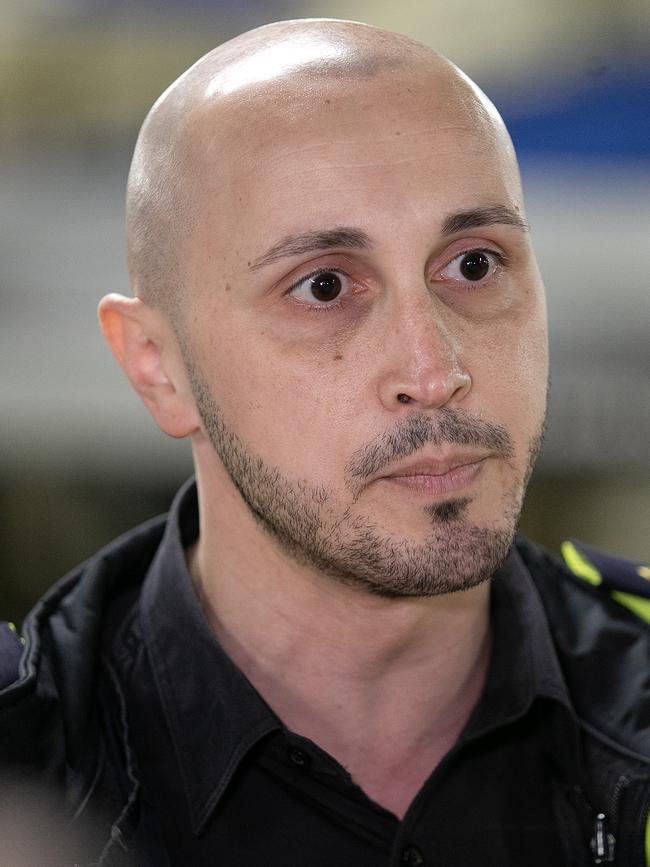
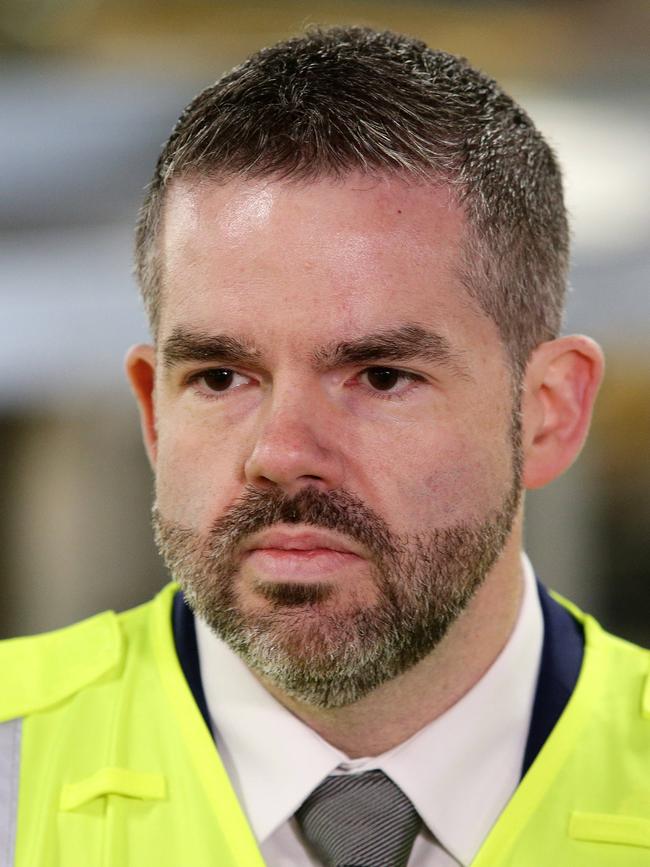
However, messages sent last year by a criminal group known as The Commission have threatened “war” on anyone bringing in fentanyl, saying Australia would be a “fentanyl-free nation”.
Inspector Karatzas said ABF officers were now trained in how to handle fentanyl in case it was detected.
“It’s a real threat that we’re aware of and it’s in our mind any time we open any compartment whether it be on board on aircraft, inside a travellers bag or in the cargo environment as well, it’s definitely something we’re on top of and are always keeping our officers aware of,” he said.
Jason Dutton, of the Canada Border Services Agency, said government agencies needed to work more closely.
“We need to be able to respond and work together and be as efficient and intelligent as possible to stay on the front foot and deter criminal organisations,” he said.
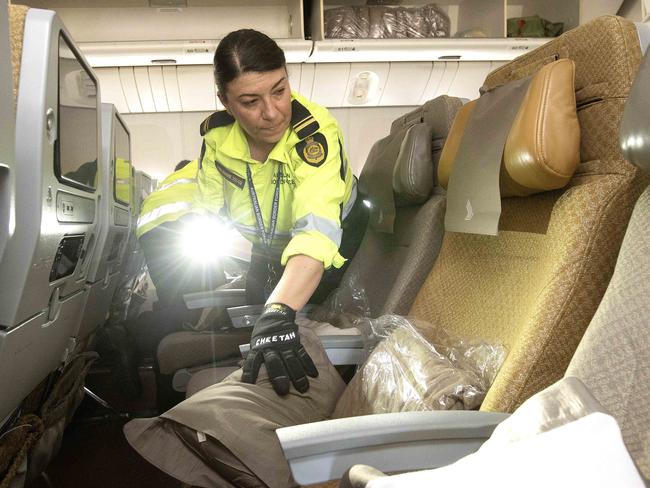
New Zealand has become a major shipping route for drugs bound for Australia from South America.
Chris Howley, a representative for the New Zealand Customs Service who attended the training, said there was a “constant battle with organised crime”.
“Drugs is a global business. Global transnational crime will use any route that they can and they change them around all the time and they will use all methodologies, they don’t discount any,” he said.
More Coverage
Originally published as Border Force staff stock up on naloxone spray as wave of deadly fentanyl threatens to hit Australian shores





